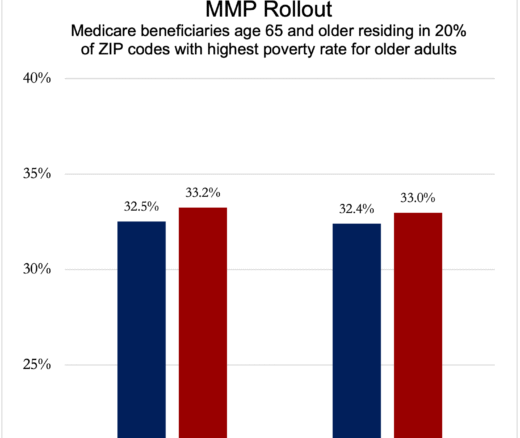
Medicare Payment Model Shortchanges Rural Patients, Study Finds
CMS’s Main Risk Adjustment Method Underestimates Rural Patients’ Health Risks, LDI Fellows Show, Potentially Reducing Access to Care in the Heartland
Blog Post

The U.S. health care system has the dubious distinction of spending more than other countries while often achieving worse outcomes. Administrative costs, which account for an estimated 20% to 25% of health care spending, provide a potential area to lower costs without hurting patient care. But reforming such spending requires a clear understanding of how providers spend today.
A recent study by LDI Senior Fellow Ezekiel J. Emanuel and colleagues evaluates current national data from the only universal public source available: Medicare Cost Reports. They find significant shortcomings in what hospitals provide today, causing missed opportunities to improve policy. The authors examined reports on over 5,600 hospitals from 2010 to 2024 and found that the granularity, accuracy, and usability of the data are inadequate for benchmarking, making operational decisions, or targeting administrative cost reductions.
“Ultimately, consistent, reliable, and actionable data is an essential step toward reducing excess expenses and improving the efficiency of our health care system as a whole,” says Emanuel.
The researchers found:
Here are three recommendations from the authors to improve Medicare Cost Reports and create opportunities to identify savings, drive efficiency, and reduce spending without compromising quality.
The authors suggest that priority policies to reduce administrative spending could include creating a centralized claims clearinghouse, standardizing physician licensure, or streamlining quality reporting. But reforms are hampered by the lack of accurate administrative data to assess the costs of current inefficiencies.
The study “Availability of Consistent, Reliable, and Actionable Public Data on U.S. Hospital Administrative Expenses” by Nikhil R. Sahni, Brooke Istvan, Heather Bello Thornhill, Karen E Joynt-Maddox, David Cutler, and Ezekiel J. Emanuel appeared in Health Affairs Scholar on May 5.


CMS’s Main Risk Adjustment Method Underestimates Rural Patients’ Health Risks, LDI Fellows Show, Potentially Reducing Access to Care in the Heartland

Experts at Penn LDI Panel Call for Rapid Training of Students and Faculty

A Proven, Low-Risk Treatment Is Backed by Major Studies and Patient Demand, Yet Medicare and Insurers Still Make It Hard To Use

New Study From LDI and MD Anderson Finds That Black and Low-Income, Dually Eligible Medicare Patients Are Among the Most Neglected in Cancer Care

Her Transitional Care Model Shows How Nurse-Led Care Can Keep Older Adults Out of the Hospital and Change Care Worldwide

Chart of the Day: Medicare-Medicaid Plans—Created to Streamline Care for Dually Eligible Individuals—Failed to Increase Medicaid Participation in High-Poverty Communities